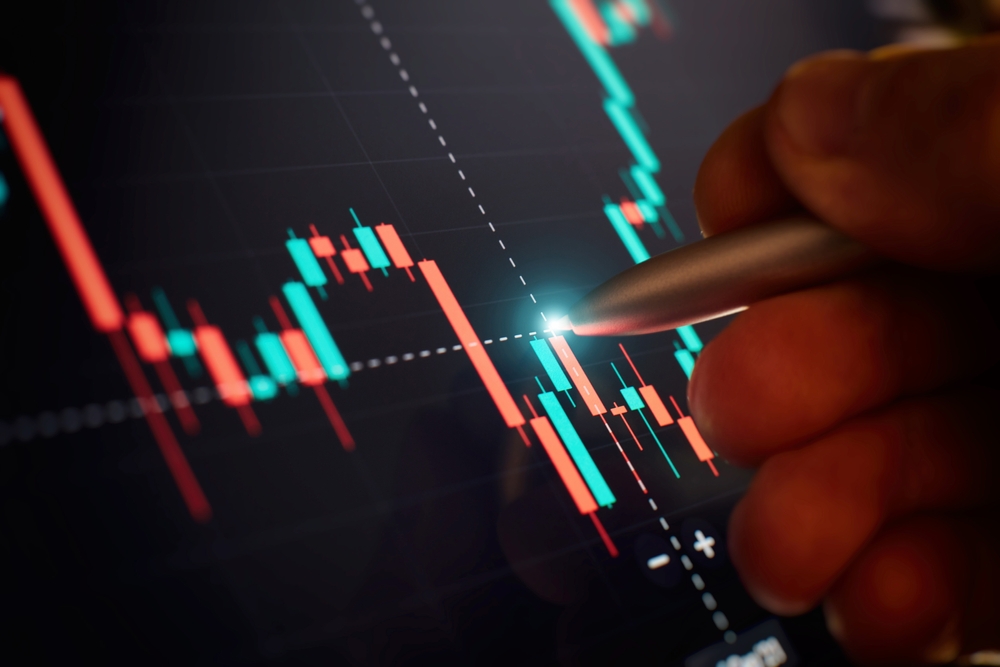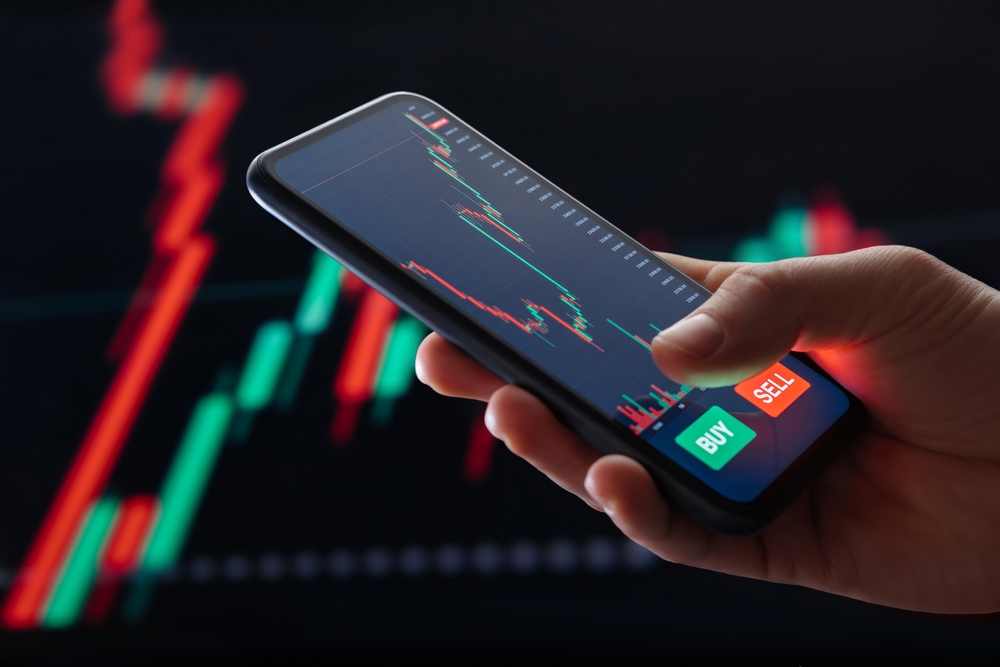Before you embark on your educational journey into forex trading for beginners, mastering the core mechanics and structure of the foreign exchange market is absolutely essential. It’s important to learn how to weigh risk and opportunity. The foreign exchange market moves quickly and works all over the world.
It is open 24 hours a day during forex market hours, which lets traders from all over the world join in. Forex is both dynamic and easy to get to because it is always changing. This means that traders have to always be ready for changes in global events, economic data, and new financial technologies.
You make money in forex by trading one currency for another and taking advantage of the changes in the exchange rate between the time you buy and the time you sell. You can learn how to trade forex safely, build discipline, and gain confidence as you navigate global markets if you do so with clarity, speed, and compliance.
Join us in this guide as we go over important parts of trading, like knowing the risks, using the best forex trading platforms, keeping an eye on how the economy affects trading, and managing your money well. You can make your trading journey more sustainable by being clear, quick, and following the rules. Let’s start!
What Is Forex Trading, and How Does It Work?
When you trade Forex for beginners, you trade one currency for another through a network of banks, brokers, and people that isn’t controlled by any one group. This means that there is no one market or central exchange that controls the whole thing. Instead, people connect online through institutional networks and online platforms. You can trade from anywhere that has an internet connection, whether it’s a computer or a mobile app.
Currency pairs are the main way that people trade in the foreign exchange market. When you look at a pairing like EUR/USD, you’re engaging in a simultaneous exchange. Think of it as a barter system. Essentially, you are choosing to purchase the Euro (EUR) while, at the exact same moment, you are selling your U.S. Dollars (USD) to fund that purchase. This reflects your prediction that the euro will gain value relative to the dollar.
That displayed exchange rate is simply the cost. It tells you exactly how much of the second currency (the one used to quote the price, the USD) you need to give up to acquire one single unit of the first currency (the base unit, the EUR). It functions just like any store price tag, showing you the required amount to buy the item in front of you.
Changes in supply and demand, interest rates, and news from around the world can all cause prices to change. These changes give traders chances to make money. The forex market is good because it is flexible; traders can make money whether prices go up or down. If you think the base currency will get stronger, you can go long (buy). If you think it will get weaker, you can go short (sell).
Understanding Currency Pairs and Exchange Rates
The core of every currency trade is built on the pair, where the initial currency acts as the base unit and the subsequent currency is the one providing the quotation.
This fixed rate clearly dictates the exact amount of the quote currency required to purchase a single unit of the base, meaning a EUR/USD rate of 1.10 signifies that one euro can be exchanged for 1.10 U.S. dollars, and any increase in that rate, for instance to 1.15, indicates that the euro has strengthened against the dollar.
To understand how the market moves, you need to know how these structural pairs work. There are three main types of currency pairs:
- Major pairs are the most traded pairs in the world, and they always include the U.S. dollar. The EUR/USD, USD/JPY, and GBP/USD are all examples.
- Minors, or crosses, are pairs that include two major world currencies but not the U.S. dollar. Dollar. EUR/GBP and AUD/JPY are two examples.
- Exotic currency pairs are defined by combining one of the major world currencies with the currency of a smaller or emerging market economy. Some examples are USD/TRY (Turkish Lira) and EUR/ZAR (South African Rand).
In the end, these exchange rates are always changing because of things like changes in the political landscape, central banks’ decisions about interest rates, new inflation data, and the general mood of traders in the market. Traders look at these changes using charts, indicators, and fundamental analysis. Learning this skill helps you feel more sure about taking positions and lowers risks in forex trading.
Jeton‘s fast transfer tools for deposits and withdrawals in many currencies can make trading easier for you. Visit our website to learn about global payment options made for active traders who want things to be clear, fast, and in line with the law.
The Role of Major and Minor Currencies
For beginners in forex trading, it’s important to know the difference between major and minor currencies.
The currencies that hold the most global significance and offer the highest liquidity for trading include the U.S. Dollar (USD), the Euro (EUR), and the British Pound (GBP), alongside the key commodity and Pacific region currencies such as the Australian (AUD) and New Zealand (NZD) Dollars, the Canadian Dollar (CAD), the Japanese Yen (JPY), and the Swiss Franc (CHF).
These eight major currencies are the building blocks of global finance and account for most of the trading volume in the market. Their high trading volume makes spreads tighter and execution faster, which is important for traders who want accuracy.
Also known as minor currencies, cross-currency pairs are trading combinations that deliberately exclude the U.S. dollar, with popular examples being the exchange between the euro and the British pound (EUR/GBP) or the Australian dollar and the Japanese yen (AUD/JPY). They usually have more price swings and wider spreads because they are less stable and less liquid. Advanced traders often use minor pairs to mix up their strategies, but beginners should stick to major pairs to lower their risks in forex trading.
You can set up your trading plan to meet your goals as long as it is clear, quick, and follows the rules. Jeton‘s clear services make it easy to manage your money. You can make deposits and transfers around the world instantly on a secure platform that is known as one of the best forex trading platforms.

How Traders Make Money in Forex
Traders make money by guessing which way the market will go and then acting on that guess. The main idea is straightforward: buy low and sell high, or sell high and buy back low. Market forces like economic reports, political events, and how investors feel about things cause forex prices to change.
How well you predict these changes will determine whether you make money or lose money on each trade. There are a number of ways to make money in forex:
- Trading on the spot means buying or selling currencies directly for immediate exchange.
- Margin trading means using borrowed money to get more exposure and possible returns.
- Swing trading is a strategic approach that seeks to capitalize on market movements and directional trends that typically unfold over a period spanning several weeks.
- Day trading means opening and closing positions on the same day to avoid risks that come with holding them overnight.
Discipline and managing money are very important. You can control your exposure by setting stop-loss and take-profit levels. Leverage can make both profits and losses bigger, so new traders should start out slowly to keep their risks low in forex trading. Monitoring economic calendars and market indicators enables you to make informed decisions.
Common Forex Trading Strategies
You need a forex strategy that fits your goals and way of life in order to be successful. Some common methods are:
- Scalping is when you make a lot of small trades to take advantage of small price changes. This method requires concentration and quick thinking.
- Day trading means opening and closing positions in the same day to avoid being exposed overnight.
- Swing trading involves maintaining market positions typically for several days to effectively capture price shifts and larger directional changes occurring over that specific time frame.
- Position trading means looking at the long term based on the economy and the policies of central banks.
Every strategy has its own pros and cons. Active traders who like to be involved all the time should try scalping and day trading. Swing and position trading, on the other hand, are good for people who want to make fewer, bigger moves.
The goal is to find a balance between how much time you can spend and how much risk you can handle. A lot of the time, new traders start by using both technical indicators like moving averages and the RSI (Relative Strength Index) and fundamental information. Testing out different forex trading strategies on demo accounts is a good way to improve your skills before you start trading with real money.
Open an account with Jeton to easily and accurately manage your money around the world. You’ll enjoy smooth payments that are perfect for traders who value speed, clarity, and compliance.
Risks Involved in Forex Trading
Every investor should know that risks in forex trading are a normal part of the process. The forex market is always changing based on news about the economy, politics, and how traders feel.
To be successful at forex trading for beginners, you need to know about these risks. The most common types of risks are:
- Risk in the market: Prices of currencies change quickly because of events around the world or changes in policy that no one saw coming.
- Risk of leverage: If you don’t manage borrowed money well, it can make your profits bigger but also your losses bigger.
- Liquidity risk: When there isn’t much trading going on, it might be hard or take a long time to make trades.
- Risk of interest rates: Changes in the central bank’s interest rate can affect the strength of a currency overnight.
Psychological risk is another small but important factor. When traders win or lose, they often make decisions based on how they feel, which can lead to rash decisions. For long-term success, it’s important to stay disciplined, patient, and able to think critically. The answer is to learn, plan, and be disciplined.
Setting stop-loss orders, not using too much leverage, and managing exposure across different pairs are all important parts of learning how to trade forex responsibly. New traders should start small and focus on learning and being consistent.
The good thing is that you have control: your plan keeps you from making decisions based on your feelings. Choose Jeton for instant deposits and easy withdrawals to quickly and safely fund trades. Jeton makes sure that traders all over the world are clear, fast, and compliant.
Tools and Platforms Used for Forex
Technology is what makes trading today. Choosing the best forex trading platforms shows how well you can analyze data, make trades, and respond quickly to changes in the market.
A good trading platform also has built-in learning tools. For people who are new to forex trading, having access to tutorials, demo accounts, and real-time support can help them learn faster. A good platform makes sure that all forex market hours have access to liquidity and fast execution. Before trading with real money, beginners should try out platforms with demo accounts.

The Impact of Economic News on Forex Markets
Forex is all about the economy. Currency values are greatly affected by reports on GDP, inflation, unemployment, and decisions made by central banks. For example, higher interest rates can make a currency stronger because investors want better returns.
On the other hand, bad economic news can make a currency weaker. When you’re just starting out in forex trading, keeping an eye on these indicators can help you guess which way the market will go instead of reacting to it.
Traders often plan their positions ahead of time, either by putting in pending orders or by lowering their exposure to avoid volatility. To be good at trading forex, you need to know how to use technical charts in the context of the larger economy.
Central bank meetings, employment data, inflation figures, and GDP announcements are all important events to keep an eye on. Also, geopolitical events like elections or trade disputes can cause volatility and create short-term chances if you handle them carefully.
You can better manage risks in forex trading by making sure your strategy fits with this information. During times of high volatility, it’s important to be able to get to your money quickly.
You have international payment options for your forex business, and you can make sure your money moves safely across the border with Jeton. If you want to further explore, make sure to check out:
Managing Forex Funds with Digital Wallets
One of the most important things you can do to be successful in long-term trading is to manage your money well. Keeping your money safe and organized is very important for both new and experienced traders.
Using digital wallets to manage your forex funds means that you have to be organized about how you handle deposits, withdrawals, and profits.
To keep things clear and stay disciplined, start by separating your trading money from your personal savings. Set aside certain amounts for each trading account or strategy.
To keep things clear and see how your performance changes over time, check your transaction history and balance on a regular basis. To avoid delays and extra costs, use tools that let you convert currency right away.
To keep your money safe, you should always have security features like two-factor authentication and encryption turned on. You might also want to keep a detailed record of all the money you send and take out.
This helps you follow the tax rules and do a good job of analyzing your performance. If you manage your money well, you’ll have enough cash on hand to react quickly to changes in the market at different times of the day.
To learn more about how to keep your money and digital accounts safe, you can check out:
How Jeton Simplifies Cross-Border Currency Management
When you trade in international markets, making payments and changing currencies across borders can get complicated. Jeton offers a modern solution that makes these problems easier to deal with by providing instant transfers and multi-currency management in one safe system.
It fits the needs of people who are learning how to trade forex and do business in more than one area perfectly. Jeton’s benefits include support for multiple currencies, instant transfers, and compatibility with the best forex trading platforms.
Jeton makes it easier for beginners to trade forex by cutting down on the time needed to manage funds and lowering the costs of converting currencies.
Its compliant infrastructure makes sure that your money moves safely and quickly. Traders get the best of both worlds with Jeton for direct trading payments and for global fund distribution. Jeton elevates your trading experience.
Trade Confidently with Jeton Wallet
Jeton Wallet gives you a seamless way to manage your funds while participating in global markets. You can store multiple currencies, make fast cross-border transactions, and access your money whenever you need it—all secured with advanced encryption.
Whether you’re topping up your trading balance, withdrawing gains, or converting currencies, Jeton Wallet streamlines every step.
Jeton Card: Your Gateway to Global Spending
With Jeton Card, you can instantly access your funds for everyday use—online or in-store. It’s perfect for traders who want fast liquidity after closing positions or need a reliable method to withdraw and use their funds globally.
Accepted worldwide and managed directly through the Jeton App, the Jeton Card gives you the flexibility to move from digital markets to real-world spending effortlessly.
One App. All Your Financial Needs.
The Jeton App brings your wallet and Jeton Card together under one ecosystem. Track your activity in real time, manage currencies, top up, spend, and transfer… all in a few taps.
Designed with global users in mind, it ensures that your financial operations stay smooth while you focus on learning, trading, and growing. Forex markets move fast—Jeton ensures your money can keep up.
Ready to step into the world of global trading with smarter financial tools?
- Activate your Jeton Wallet for fast and safe cross-border transfers.
- Get your Jeton Card for instant access to your funds worldwide.
- Download the Jeton App via the App Store or Google Play and enjoy Jeton’s promise: “one app for all needs.”
Sign up now for Jeton and trade the global currency market with confidence and flexibility!



